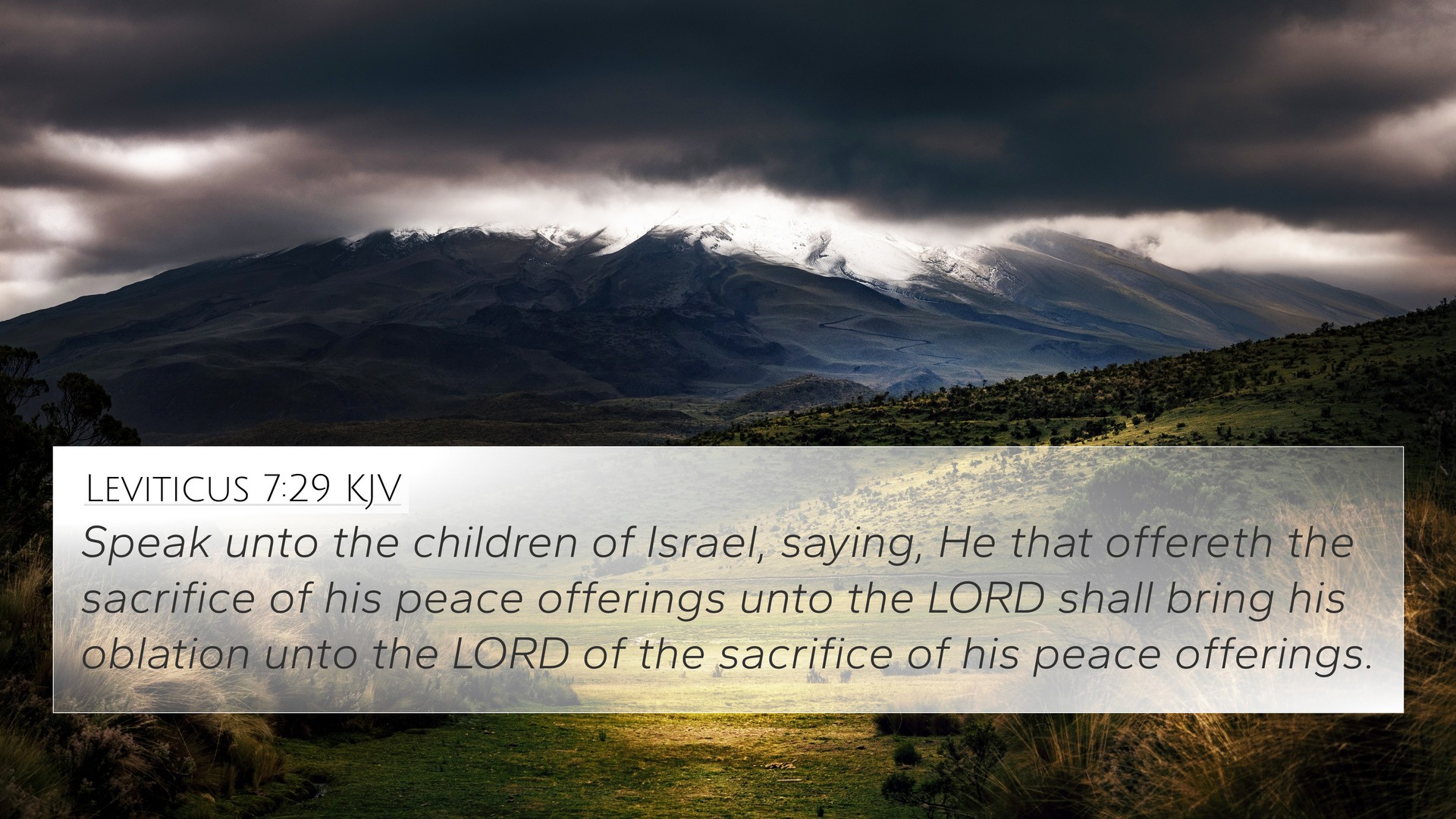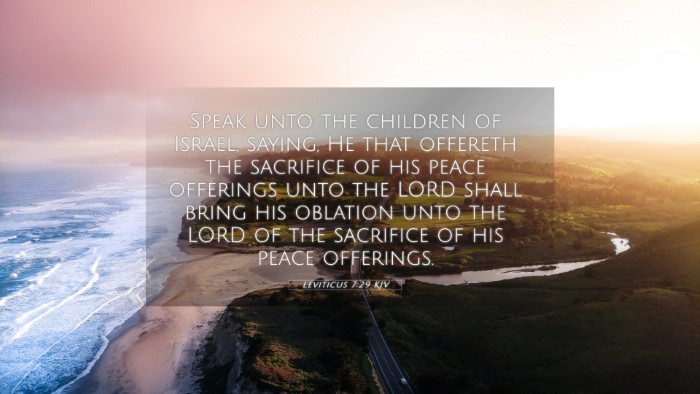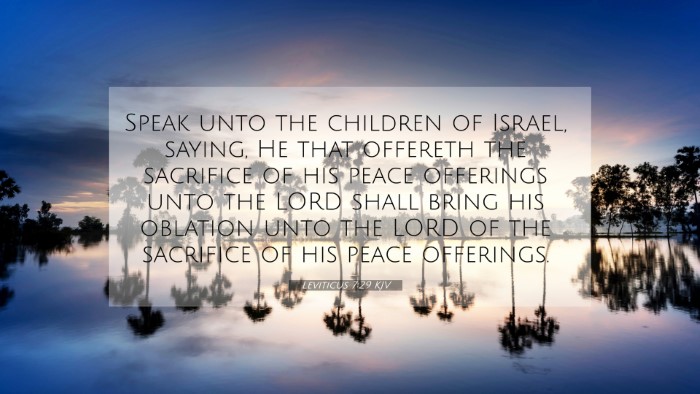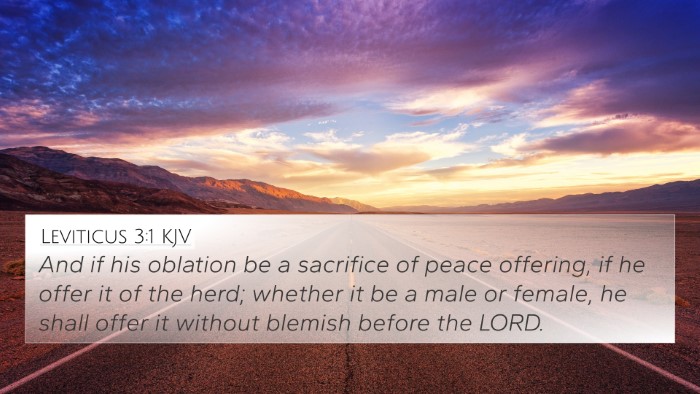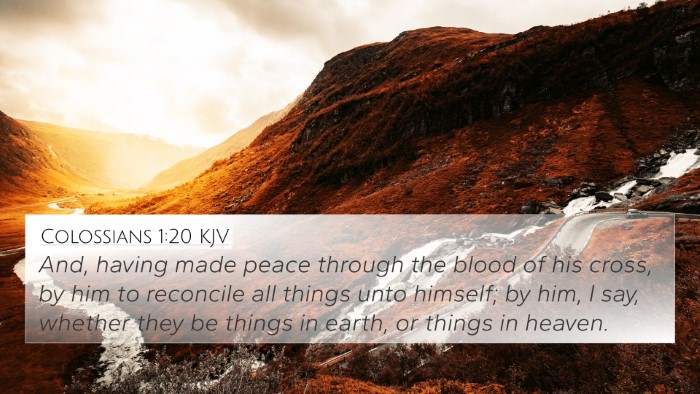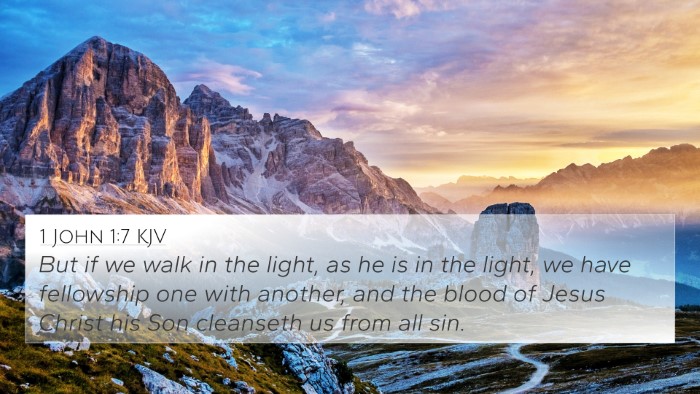Understanding Leviticus 7:29
Leviticus 7:29 states: "Speak unto the children of Israel, saying, He that offereth the sacrifice of his peace offerings unto the LORD shall bring his oblation unto the LORD of the sacrifice of his peace offerings."
Summary of the Verse
This verse emphasizes the instructions given to the Israelites regarding peace offerings. It outlines the importance of bringing an offering as a demonstration of fellowship and thanksgiving between the worshiper and God. This practice not only signifies devotion but also helps maintain a communal connection with others present during worship.
Commentary Insights
Matthew Henry's Commentary
Matthew Henry highlights that this verse is part of a larger discussion regarding peace offerings, which are significant as they symbolize mutual goodwill between God and His people. He explains that these offerings are voluntary acts of worship and gratitude, representing the peace that comes from reconciliation with God.
Albert Barnes' Notes
Albert Barnes elaborates on the nature of the peace offerings by pointing out that they are different from sin offerings. He indicates that peace offerings were often made in joyous and celebratory contexts, representing the well-being and harmony between God and the worshiper. This also reflects communal aspects, enabling feasting and fellowship among those who partake of the sacrifices.
Adam Clarke's Commentary
Adam Clarke remarks on the significance of the "oblation" being a portion of the peace offerings taken from the overall sacrifice. He notes that such rituals are meant to express gratitude and affirm the relationship between God and His people. Clarke suggests that the act of bringing offerings can be seen as a precursor to later practices in Christian worship, emphasizing a continued tradition of acknowledgment and thanks.
Bible Verse Cross-References
Several other Bible verses connect with Leviticus 7:29, highlighting inter-Biblical dialogues and thematic connections:
- Leviticus 3:1-5 - Describes the procedure for offering peace offerings.
- Exodus 20:24 - Establishes the ritual for making sacrifices to God.
- Deuteronomy 12:6 - Discusses the offering of sacrifices at the place God chooses.
- Acts 2:42 - Shares the early church's practices of breaking bread in fellowship, mirroring the communal aspect of peace offerings.
- 1 Corinthians 10:21 - Speaks about the communion of the body of Christ as a form of offering.
- Romans 12:1 - Presents the concept of presenting our bodies as living sacrifices as an act of worship.
- Psalms 107:22 - Invites expressions of gratitude and thankfulness in offerings to God.
Thematic Connections
The thematic connections illuminated through cross-referencing this verse reveal the broader biblical context in which offerings are presented:
- Links to Sacrificial System: Each offering sheds light on the sacrificial system in place for reconciliation with God.
- Community Worship: Peace offerings promote community through shared meals, connecting to New Testament practices.
- Thanksgiving: A essence of thankfulness runs through these offerings, central to both the Old and New Covenant worship.
Tools for Bible Cross-Referencing
For further exploration, tools for Bible cross-referencing can greatly enhance the study of this verse:
- Bible concordance
- Bible cross-reference guide
- Cross-reference Bible study methods
- Bible reference resources
Understanding Cross-References
Understanding how to find cross-references in the Bible can deepen one's comprehension of scriptural contexts and themes. By identifying connections between the Old and New Testaments, one can find meaningful parallels that enrich personal study and enhance sermon preparation.
Conclusion
Leviticus 7:29 serves as a crucial element in the understanding of sacrificial practices and the relational dynamics between God and His people. Through a combined study of related scriptures, the insights shared by public domain commentators, and the use of cross-referencing tools, believers can gain a more profound appreciation and understanding of this verse.
